
Hieronymus Bosch The Garden of Earthly Delights, centre panel, detail c1500

Xi Jinping arrives in Moscow today, and he means business. The US knows this, and refuses his ceasefire plans. Which he will sign with Putin tomorrow, and send them to Zelensky – after a short phone-call. Washington tells Zelensky not to sign. Not what Xi wants. What does he have planned after that? Will he cut exports to the US?

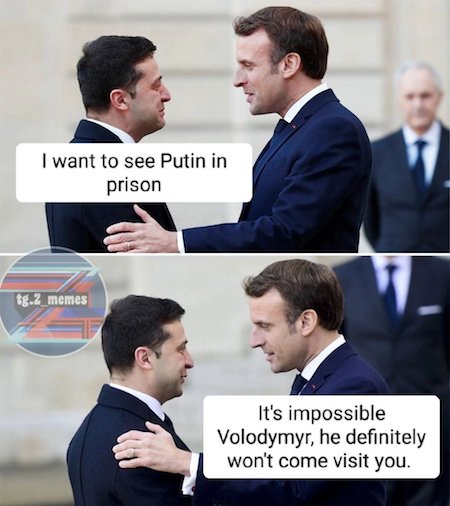

Nap/Macgregor The Russians have destroyed Three Ukrainian Armies

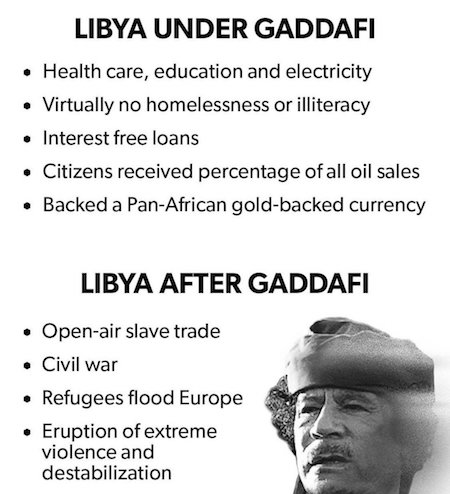

I Would Not Mess With Putin – Seymour Hersh + Rickards: Energy Armageddon

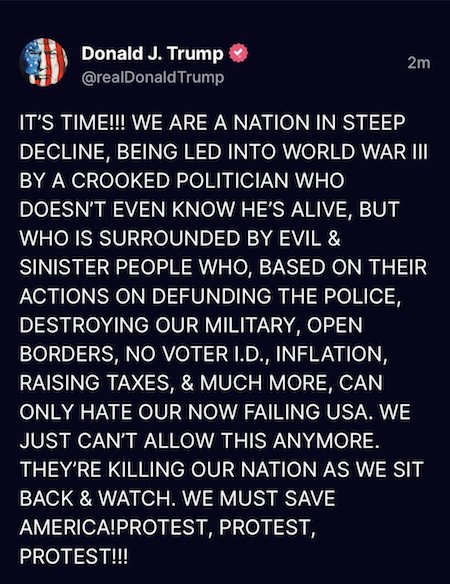

2017 Poroshenko Trump
For those still confused about the history of how the US began sending lethal arms to Ukraine, take seven minutes watch this excerpt from the BBC series "Putin vs. the West"
June 2017: Ukraine president Poroshenko says he received a verbal commitment from Trump to send the arms pic.twitter.com/3EicLL0IQb
— Michael Tracey (@mtracey) March 20, 2023

Paris
Thousands of anti-war protesters took to the streets of Paris to protest against the supply of arms to Ukraine and demand the withdrawal of France from the US-led NATO bloc. pic.twitter.com/ESKAKqVvfQ
— Hassan Mafi (@thatdayin1992) March 19, 2023

Dinesh
Why has Tucker Carlson stopped airing footage from Jan 6? I provide a likely explanation. pic.twitter.com/CLHkyvUrwm
— Dinesh D'Souza (@DineshDSouza) March 19, 2023


The panic is tangible. Bypass laws, bypass shareholders… Credit Suisse must be in terrible shape. Will UBS survive being forced to buy them?
Egon von Greyerz: “THE CHF 16B WRITE DOWN BY SWISS REGULATOR #FINMA OF THE #Credit_Suisse AT1 BONDS WILL CREATE PANIC IN EUROPEAN AND GLOBAL DEBT MARKETS. BUY MORE PHYSICAL GOLD AND HANG ON TO YOUR SEATS.”
European bank stocks are plummeting.
• UBS To Buy CS For $3 Billion As AT1 Bonds Get Wiped Out In Record Bail-In (ZH)
We finally have a deal, and what was at first a CHF1 BN acquisition priceof Credit Suisse by UBS, which then rose to CHF 2 BN, has now cranked up one final time to CHF 3BN (US$3.25 billion), or 0.76 per share, specifically shareholders of Credit Suisse will receive 1 share in UBS for 22.48 shares in Credit Suisse. As part of the deal, the Swiss National Bank is offering a 100 billion-franc liquidity assistance to UBS while the government is granting a 9 billion-franc guarantee for potential losses from assets UBS is taking over, i.e., this is a taxpayer-backed bailout. More importantly, however, the bank’s entire AT1 tranche – some CHF16BN of Additioanal Tier 1 (AT1) bonds, a $275BN market – will be bailed in and written down to zero, to wit: “FINMA has determined that Credit Suisse’s Additional Tier 1 Capital (deriving from the issuance of Tier 1 Capital Notes) in the aggregate nominal amount of approximately CHF 16 billion will be written off to zero.”
This wipe out, pardon, bail-in is the biggest loss yet for Europe’s $275 billion AT1 market, far eclipsing the approximately €1.35 billion loss suffered by junior bondholders of Spanish lender Banco Popular SA back in 2017, when it was absorbed by Banco Santander SA to avoid a collapse. AT1 bonds were introduced in Europe after the global financial crisis to serve as shock absorbers when banks start to fail. They are designed to impose permanent losses on bondholders or be converted into equity if a bank’s capital ratios fall below a predetermined level, effectively propping up its balance sheet and allowing it to stay in business. As Bloomberg notes, investors had been concerned that a so-called bail-in would result in the AT1s being written down, while senior debt issued by the holding company, Credit Suisse would be converted into equity for the bank. In retrospect, they were right to be worried… meanwhile equityholders get CHF3 billion; we are confident Swiss pensions will be delighted they are getting a doughnut while the Saudis get a not immaterial recovery.

“The international community has recognized that no country is superior to others, no model of governance is universal, and no single country should dictate the international order,,”
• Xi Jinping Sees Shift To Multipolar World As ‘Irreversible’ (RT)
Chinese President Xi Jinping has set the tone for his visit this week to Moscow by touting improving relations with Russia in the ten years since he took office and vowing that the transition to a “multipolar world” liberated from US domination won’t be stopped. “The world today is going through profound changes unseen in a century,” Xi wrote in an article published on Sunday by the Rossiyskaya Gazeta. “The historical trend of peace, development and win-win cooperation is unstoppable. The prevailing trends of world multipolarity, economic globalization and greater democracy in international relations are irreversible.”
Xi, who’s scheduled to arrive on Monday for talks with Russian President Vladimir Putin, noted that the world faces “traditional and non-traditional security challenges,” as well as “damaging acts of hegemony, domination and bullying.” He added that countries around the world are “eager to find a cooperative way out of the crisis” as they try to get through a “long and tortuous global economic recovery.” “The international community has recognized that no country is superior to others, no model of governance is universal, and no single country should dictate the international order. The common interest of all humankind is in a world that is united and peaceful, rather than divided and volatile.”
Xi made his comments amid escalating tensions with Washington over the Ukraine crisis and US interference in China’s sovereignty over Taiwan. Beijing has resisted Western pressure to condemn Russia over the Ukraine conflict, maintaining neutrality on the issue and promoting a 12-point peace plan to end the hostilities. Washington has dismissed the peace proposal and accused China of mulling military aid to Russia. “We believe that as long as all parties embrace the vision of common, comprehensive, cooperative and sustainable security, and pursue equal-footed, rational and results-oriented dialogue and consultation, they will find a reasonable way to resolve the crisis, as well as a broad path toward a world of lasting peace and common security,” Xi said. He added that China’s plan takes into account the “legitimate security concerns of all countries.”
China and Russia have cemented mutual trust and fostered a “new model of major-country relations” over the past decade, as evidenced by a doubling of trade between the two nations, reaching $190 billion in 2022, Xi wrote. “We have been active in practicing true multilateralism, promoting the common values of humanity, and championing the building of a new type of international relations and a community with a shared future for mankind.” Xi called for increasing the quality and quantity of investment and economic cooperation between China and Russia, as well as stronger policy coordination. “We have every reason to expect that China and Russia, as fellow travelers on the journey of development and rejuvenation, will make new and greater contributions to human advancement.”

Loud and clear.
• Russian-Chinese Relations Remain Strong As Tested By Time – Xi Jinping (TASS)
Russian-Chinese relations went through tough periods throughout their history, but they had eventually proved to be strong, Chinese leader Xi Jinping said in an interview with Russia’s Rossiyskaya gazeta daily. “At the invitation of President Vladimir Putin, I will soon pay a state visit to the Russian Federation. Russia was the first country I visited after I was elected President 10 years ago,” Xi Jinping said in the article published ahead of his visit to Russia. “Over the past decade, I have made eight visits to Russia,” he continued. “I came each time with high expectations and returned with fruitful results, opening a new chapter for China-Russia relations together with President Putin.”
“Looking back on the extraordinary journey of China-Russia relations over the past 70 years and more, we feel strongly that our relationship has not reached easily where it is today, and that our friendship is growing steadily and must be cherished by us all,” Xi Jinping said in the article published ahead of his visit to Russia. “China and Russia have found a right path of state-to-state interactions,” Xi stated. “This is essential for the relationship to stand the test of changing international circumstances, a lesson borne out by both history and reality.” “My upcoming visit to Russia will be a journey of friendship, cooperation and peace. I look forward to working with President Putin to jointly adopt a new vision, a new blueprint and new measures for the growth of China-Russia comprehensive strategic partnership of coordination in the years to come,” the Chinese president said.
“To this end, our two sides need to enhance coordination and planning. As we focus on our respective cause of development and rejuvenation, we should get creative in our thinking, create new opportunities and inject new impetus. It is important that we increase mutual trust and bring out the potential of bilateral cooperation to keep China-Russia relations at a high level,” Xi added. Russian President Vladimir Putin and Chinese leader Xi Jinping are scheduled to hold negotiations in Moscow on March 21. Earlier, Moscow and Beijing announced that Xi Jinping would make an official visit to Russia on March 20-22. According to previous reports from the Kremlin, negotiations would feature discussions of “current issues of further development of relations of comprehensive partnership and strategic cooperation between Russia and China.” The sides also planned to exchange opinions within the context of deepening Russian-Chinese cooperation on the international arena. They are also expected to sign a number of important bilateral documents.

The White House attempts to pre-empt Xi.
“Russia cannot be defeated militarily in a year, and the warrant of the International Criminal Court (ICC) in The Hague on the “arrest” of Russian President Vladimir Putin deprives the West of the opportunity to negotiate with Moscow and will lead to an escalation of the conflict and new victims”
– Serbian President Aleksandar Vucic
• White House Says It Opposes a Ceasefire in Ukraine (Antiwar)
The White House has come out against a ceasefire in Ukraine ahead of Chinese President Xi Jinping’s trip to Moscow to potentially mediate between Russian President Vladimir Putin and his counterpart in Kyiv. Xi is due to arrive in Moscow on Monday and is expected to speak virtually to Ukrainian President Volodymyr Zelensky following his talks with Putin. Xi’s trip comes after Beijing released a 12-point peace plan for Ukraine that called for the two sides to cease hostilities and for peace talks to begin. Zelensky expressed openness to China’s proposal, but it was immediately rejected by President Biden. “We don’t support calls for a ceasefire right now,” White House National Security Council spokesman John Kirby said on Friday, according to Newsweek.
“We certainly don’t support calls for a ceasefire that would be called for by the PRC in a meeting in Moscow that would simply benefit Russia.” Kirby’s comments come as Ukrainian and Russian forces continue to battle in the Donbas city of Bakhmut, which has become known as the “meat grinder” due to the heavy casualties. Ukraine has been pouring in barely-trained conscripts to fight in the city, and the US thinks Kyiv is wasting too many resources in the battle. The US wants Ukraine to launch a counteroffensive in the spring, although a senior Ukrainian official told The Washington Post last week that Kyiv doesn’t have the resources to pull it off. Kirby’s reasoning for opposing a ceasefire at this time is that a pause in fighting could concede territory to Moscow.
Kirby said the ceasefire would, “in effect, recognize Russia’s gains, and its attempt to conquer his neighbor’s territory by force, allowing Russian troops to continue to occupy sovereign Ukrainian territory and, of course, it would be another continued violation of the UN Charter.” The US and its allies discouraged peace talks and mediation efforts that were conducted shortly after Russia’s February 2022 invasion. At that time, Moscow was seeking a deal that would have reverted to the pre-invasion territorial lines. But now, Ukraine stands to lose much more as Russia has annexed the territory it controls in the Ukrainian oblasts of Kherson and Zaporizhzhia and the breakaway Donbas republics of Donetsk and Luhansk.

Kirby about Xi’s visit: “State visit, if you will..”
• Ukraine Ceasefire ‘Unacceptable’ – White House (RT)
Washington is firmly opposed to a ceasefire between Russia and Ukraine, US National Security Council spokesman John Kirby has said, branding any peace initiatives “unacceptable” in the current situation. The senior White House official made the remarks on Sunday in an interview with Fox News. Kirby touched on the upcoming visit of Chinese President Xi Jinping to Moscow to meet his Russian counterpart, Vladimir Putin, stating that should any peace initiatives come out of their meeting, Washington would reject them. “What we have said before, and we’ll say it again today, that if coming out of this meeting, there’s some sort of call for a ceasefire, well, that’s just going to be unacceptable because all that’s going to do… is ratify Russian’s conquest to date,” Kirby stated.
Moscow and Beijing have been“increasing their cooperation and their relationship” lately, the official said, asserting that the two nations have joined to undermine and “rewrite” the so-called “rules of the game globally.” Russia and China “are two countries that are chafing against this international rules-based order that the United States and so many of our allies and partners have built up, since the end of World War II,” he said. Recently, China floated a 12-point roadmap for putting an end to the conflict between Russia and Ukraine, which has been raging for over a year already. China has taken a neutral stance on the hostilities, repeatedly urging both parties to show restraint and stick to diplomacy in order to find a resolution.
While the Chinese roadmap has been welcomed in Moscow, it has received a cold reception in the West. Multiple top officials have brushed off Beijing’s efforts to act as a mediator, accusing it of siding with Moscow. US President Joe Biden, for instance, openly questioned Beijing’s motives and voiced suspicion over Moscow’s reaction to it. “Putin is applauding it, so how could it be any good?” the US president said shortly after the plan was unveiled.
“We won’t accept a ceasefire.”
The US Govt dictates to Ukraine that it wants more war and more dead Ukrainians. What a friend.pic.twitter.com/BFGVcs9Rhj
— Kim Dotcom (@KimDotcom) March 20, 2023

“If I want to increase production of gunpowder I need probably three years..”
• EU Explosives Shortage Threatens Ukraine – FT (RT)
The EU defense industry’s ability to provide Ukraine with military supplies has been hampered by a deficit of explosives, The Financial Times reported on Sunday, citing sources. Several European officials and arms manufacturers told the outlet that the bloc’s military plants are suffering from scarce supplies of gunpowder and TNT, which could delay plans to boost shell production by three years. The sources also complained that this meant the defense industry would be unable to meet the soaring demand “regardless of how much money is thrown at the problem.” “The fundamental problem is that the European defense industry is not in good shape for large-scale war production,” one German official told the outlet.
These concerns were echoed by Jiri Hynek, who chairs the Defense and Security Industry Association of the Czech Republic. He said, as quoted by the FT, that while building a new artillery factory “is very easy,” it is impossible to produce shells without raw materials. The official proceeded to point out that “it’s not possible to increase, in a short time, nitrocellulose” production, which is the basic ingredient in gunpowder. “If I want to increase production of gunpowder I need probably three years,” he added. To remedy the situation, the EU needs to find new sources of supply, according to Italian defense official Gianclaudio Torlizzi. He told the FT that the continent needs to approach countries that it had traditionally stayed away from. “Each European country wants to protect its availability of raw materials,” he explained.
EU officials have repeatedly voiced concerns about their dwindling arms stocks due to the bloc’s support of Ukraine. Last December, EU foreign policy chief Josep Borrell lamented that years of underinvestment had resulted in military stocks quickly running out. Against this backdrop, several key European officials have urged the bloc to switch over to a “war economy.” Meanwhile, on Thursday, the New York Times reported that the US and its allies were running out of ammunition for Ukraine, which is burning through thousands of shells each day in the battle for the key Donbass city of Artyomovsk (called Bakhmut in Ukraine). According to the newspaper, Western officials worry that this process is “unsustainable” and could jeopardize Kiev’s planned springtime campaign.

The narrative is that Russia will attack beyond Ukraine. It’s just a narrative.
• NATO Is Racing To Arm Its Russian Borders. Can It Find The Weapons? (Pol.eu)
Add NATO’s military planners to the list of those concerned about having enough shells. In the coming months, the alliance will accelerate efforts to stockpile equipment along the alliance’s eastern edge and designate tens of thousands of forces that can rush to allies’ aid on short notice — a move meant to stop Russia from expanding its war beyond Ukraine. To make that happen, though, NATO must convince individual countries to contribute various elements: Soldiers, training, better infrastructure — and, most notably, extensive amounts of pricey weapons, equipment and ammunition. With countries already worried about their own munitions stockpiles and Ukraine in acute need of more shells and weapons from allies, there is a risk that not all NATO allies will live up to their promises to contribute to the alliance’s new plans.
[..] It’s a challenge NATO has faced in the past, and one that experts fear could become a persistent problem for the Western alliance as Russia’s war drags into a second year. While the U.S. and EU are making plans to source more weapons — fast — the restocking process will inevitably take time. That could run into NATO’s aspirations. Military leaders this spring will submit updated regional defense plans intended to help redefine how the alliance protects its 1 billion citizens. The numbers will be large, with officials floating the idea of up to 300,000 NATO forces needed to help make the new model work. That means lots of coordinating and cajoling. “I think you need forces to counter a realistic Russia,” said one senior NATO military official, underscoring the need for significantly “more troops” and especially more forces at “readiness.”
There are several tiers of “readiness.” The first tier — which may consist of about 100,000 soldiers prepared to move within 10 days — could be drawn from Poland, Norway and the Baltic states (Estonia, Latvia and Lithuania), said Heinrich Brauß, a former NATO assistant secretary general for defense policy and force planning. It may also include multinational battlegroups the alliance has already set up in the eastern flank. A second tier of troops would then back up those soldiers, ready to deploy from countries like Germany in between 10 to 30 days. But the process could get tricky. Why? Because moving so quickly, even given a month, requires lots of people, equipment and training — and lots of money.
Some militaries will have to up their recruitment efforts. Many allies will have to increase defense spending. And everyone will have to buy more weapons, ammunition and equipment. Ben Hodges, former commander of U.S. Army Europe, said that “readiness” is “basically, do you have all the stuff you’re supposed to have to do the mission assigned to a unit of a particular size?” “An artillery battalion needs to shoot X number of rounds per year for planning purposes in order to maintain its level of proficiency,” he said. A tank battalion needs to hit targets, react to different situations and “demonstrate proficiency on the move, day and night, hitting targets that are moving.” “It’s all very challenging,” he said, pointing to the need for training ranges and ammunition, as well as maintaining proficiency as personnel changes over time. “This obviously takes time and it’s also expensive.”
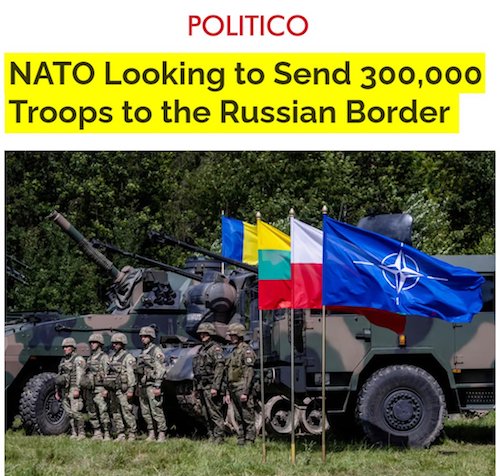

As NATO scrambles to arm Ukraine -and itself-, Russia has no such problems.
Putin was asked why Russia didn’t invade in 2014.
“There are other cutting-edge systems as well, though in 2014 there was nothing of the kind..”
• Russia Has Hypersonic Weapons Now, But It Does Not Use Them – Putin (TASS)
Russia does not use hypersonic weapons in fact now, though it has them, same as other cutting-edge systems, President Vladimir Putin said in an interview for the “Moscow. Kremlin. Putin” program on Rossiya-1 TV channel published by journalist Pavel Zarubin on his Telegram channel on Sunday. “Indeed, we have to do much, let’s say, for the development of land forces, but back then [in 2014] there were no hypersonic weapons, though they exist now! Yes, we do not use them in fact, but we have them. Do you understand? There are other cutting-edge systems as well, though in 2014 there was nothing of the kind,” Putin said. Asked whether it was worth starting the special operation in 2014, he stressed that the reality has changed since then: “Conjunctive mood cannot be used here!”.

Two can play that game..
• Russian Files On Kiev’s Crimes To Provide Basis For Tribunal – Kremlin (TASS)
Russia’s Investigative Committee thoroughly records all Kiev’s crimes, with those files to potentially provide a basis for tribunal in the future, Kremlin Spokesman Dmitry Peskov told reporters on Sunday. “We know that the Investigative Committee is involved in this work. All crimes committed by the Kiev regime are thoroughly recorded. <…> The files will obviously be able to provide a basis for such a tribunal,” he said when asked how the Kremlin takes the idea of a tribunal on Kiev’s regime. Chairman of the Russian Investigative Committee Alexander Bastrykin said earlier that Moscow should establish an international judicial body in response to Western countries, which are preparing similar structures for Russia’s prosecution.

There we go…
• Poland May End Up ‘Joining’ Ukraine Conflict – Diplomat (RT)
Poland may end up “joining” the ongoing conflict between Russia and Ukraine should the latter fail to protect its “independence,” the Polish ambassador to France, Jan Emeryk Rosciszewski, has said. The senior diplomat made the remarks on Saturday while speaking live to the broadcaster LCI. Rosciszewski squarely blamed the hostilities, which have been ongoing for over a year already, on Moscow, stating that it was “not NATO, not Poland, not France and not Slovakia” that was ramping up international tensions, but Russia. According to the diplomat, the situation now is “either Ukraine will successfully defend its independence, or we will be forced, in any case, to join this conflict.” “Otherwise, our principal values, which are the basis of our civilization and our culture, will be in fundamental danger, so we will have no choice,” Rosciszewski stated.
The hawkish statement promptly made headlines in international media, prompting the Polish mission in France to elaborate further on the remarks made by its head. According to a message released by the embassy on Sunday, Rosciszewski’s comments were not actually an admission that Warsaw was ready to go to war with Russia, but merely a “warning” and a pledge to continue supporting Kiev. “Listening carefully to the entire conversation allows us to understand that there was no announcement of Poland’s direct involvement in the conflict, but only a warning against the consequences of Ukraine’s defeat – the possibility of Russia attacking or dragging into the war more Central European countries – the Baltic states and Poland,” the statement reads. The embassy also condemned the purportedly “sensational” reporting on the bombshell interview, suggesting that some unidentified media outlets may have acted in “ill will.”
The remarks received a poor reception in Moscow, with a top Russian senator, Alexey Pushkov, warning Warsaw of the potential consequences and questioning its presumed resolve to fight Russia on its own. “A very presumptuous statement by the Polish ambassador in Paris. For the first time, an official representative of Poland said what its leaders have long had on their minds. However, all the ‘courage’ of the Poles is based on the support of the United States. Is Warsaw sure that Washington is ready to fight?” Pushkov said in a Telegram post.
Poland has been among the most active supporters of Kiev in the hostilities against Russia, sending in assorted military hardware, including tanks and artillery pieces, to prop up Ukraine. Apart from that, Polish mercenaries have been directly involved in the conflict in significant numbers, according to Moscow. Warsaw has also announced a major military buildup of its own, seeking to greatly expand the ranks of its armed forces and procure large amounts of modern military hardware from overseas.

Is Belarus being provoked by Ukraine to spread the war? You’d almost think so…
• Belarus Cracks Down On Pro-Ukraine Guerrillas As War Threatens To Expand (ZH)
The Belarus government is implementing widespread measures to crack down on dissent as pro-Ukraine guerrillas attempt to sabotage railways and other logistics that could be used by Russia for a future offensive from the north. The move comes not long after the guerrillas, part of an organization called BYPOL, used two armed drones to damage a Russian Beriev A-50 parked at the Machulishchy Air Base near Minsk. The early warning aircraft was lent to Belarus for monitoring the security of their southern border. The attack failed to destroy the plane beyond minor repairs according the the Belarus government, but did garner BYPOL headlines in the western media.
What they did not report was that the primary perpetrator of the attack was apprehended along with 20 other accomplices. Belarus claims that at least one of the guerrillas has ties to Ukrainian security services, though this remains unconfirmed. Last month, President Alexander Lukashenko warned that: “I’m ready to fight together with the Russians from the territory of Belarus in one case only: if so much as one soldier from (Ukraine) comes to our territory with a gun to kill my people.” If BYPOL attacks continue within Belarus they may provide the very rationale that Lukashenko needs to justify joining military forces with Russia, which would open up the northern border of Ukraine to attack and likely deal a devastating blow to the nation’s defensive posture.
Acts of sabotage have already been used as fuel for civilian restrictions including the issuance of arrest warrants for numerous activists as well as at least five journalists, two of them now sentenced to 12 years in prison for a variety of charges including “Tax evasion, organizing activities aimed at inciting racial, ethnic, religious, or social hatred, and public calls through the media and the Internet aimed at damaging the national security of Belarus.” The Belarus government seems to have abandoned optics in favor of policies akin to martial law, which suggests a near term plan to join Russia militarily as well as to wage an anti-insurgency effort against BYPOL. Foreign Minister Sergei Aleinik stated at the end of February that the accelerated militarization of the eastern flank of the North Atlantic Treaty Organization (NATO) represents a threat to his country’s security.

” This one was prepared not to determine the truth, but rather to “justify” a preemptive war on Iraq, where there was nothing to preempt.”
• Iraq 20 Years (Ray McGovern)
C.I.A. Director Tenet suggested basing a new draft on the National Intelligence Estimate of Oct. 1, 2002, “Iraq’s Continuing Programs for Weapons of Mass Destruction.” That had immense appeal to Tenet and others who had been co-opted into “leaning forward” to facilitate a Bush/Cheney war on Iraq. Indeed, one can assume it had appeal to most of those involved in Powell’s speech preparation, given that the Security Council briefing was but a handful of days away. I have been referring to that NIE, advisedly, as The Whore of Babylon, wrong on every major accusation about WMD in Iraq. I speak from experience at the C.I.A. as a former chair of National Intelligence Estimates. This one was prepared not to determine the truth, but rather to “justify” a preemptive war on Iraq, where there was nothing to preempt.
To their credit, State/INR analysts had expressed formal dissent from some of its main conclusions back in September 2002. No, it is not possible that Powell could have been unaware of that. And it is not difficult to explain why Powell chose to spurn his own intelligence analysts, despite their relatively solid reputation. I will resist the temptation to guess at Powell’s motivation, even though I have had some considerable experience with him. Back in the day, we used to spend a few minutes comparing notes before my one-on-one morning briefings of his boss, Defense Secretary Casper Weinberger, with The President’s Daily Brief. I am not surprised, though, as Draper quotes Powell explaining his decision to stay in place as secretary of state and to do what he was told: “I knew I didn’t have any choice. He’s the President.”
Draper adds that, “although Powell would not admit it, Bush’s request that he be the one to make the case against Hussein to the U.N. was enormously flattering. Cheney took a more direct approach: ‘The Vice President said to me: “You’re the most popular man in America. Do something with that popularity.”” Draper describes INR’s Director Ford as “heartsick” watching Powell on TV before the U.N. Security Council. Ford’s chagrin was widely shared among serious intelligence analysts — as well as by us alumni watching the prostitution of what had been our tell-it-like-it-is intelligence analysis profession. But there the National Intelligence Estimate was for plucking — an intelligence community-endorsed consensus already “on the books” — and with drafting time running out.

“I also paid more income tax than anyone ever in the history of Earth for 2021 and will do that again in 2022.”
• Elon Musk Fact-Checks Biden On Tax Claim (RT)
America’s richest man on Saturday took issue with President Joe Biden’s effort to sell voters on tax increases by claiming that billionaires get away with paying only 3% of their earnings, on average, to the federal government. Tesla CEO Elon Musk pushed back after Biden posted a Twitter message arguing that the mega-rich aren’t paying their fair share of taxes. “You know the average tax billionaires pay?” Biden asked, before answering the question himself with his 3% claim. “No billionaire should be paying a lower tax than somebody working as a schoolteacher or a firefighter.” Musk replied, “I paid 53% taxes on my Tesla stock options (40% federal and 13% state), so I must be lifting the average! I also paid more income tax than anyone ever in the history of Earth for 2021 and will do that again in 2022.”
He then invited Twitter users in the platform’s Community Notes program to weigh in on whether the 3% figure was accurate. Biden has repeatedly made the claim while promoting his effort to raise taxes on high-income Americans. When he made the same statement in a speech last month, PolitiFact pointed out that it was false. “Under today’s laws, the 25 highest-earning billionaires paid an average tax rate of 16%,” the fact-checking outlet said. The group added that most teachers and firefighters fall within an income range with effective tax rates of zero to 15%.
Biden’s 2024 budget proposal calls for raising tax rates on individuals with earnings of more than $400,000 a year and married couples making over $450,000. He also has demanded a 25% minimum tax on Americans with fortunes exceeding $100 million. “Look, I think you should be able to be a billionaire if you can earn it, but just pay your fair share,” Biden said. “I think you ought to pay a minimum tax of 25%. It’s about basic fairness.” Musk countered, “I certainly agree that everyone should pay taxes and not engage in elaborate tax-avoidance schemes.” Such schemes aren’t necessary for low-income Americans because more than 40% of US households pay no federal income tax.

Nord Stream fallout.
• Germans Warned Of Energy Crisis Next Winter (RT)
Germany has managed to avoid an energy crisis this year, but there is a risk that the next heating season will be more difficult, Klaus Mueller, the head of Germany’s Federal Network Agency said in an interview with the Rheinische Post, published on Saturday. According to Mueller, the country’s gas storage facilities are currently 64% full, and even if it the weather turns cold in the next few weeks, German energy supply for the remainder of the heating season is secured. He warned, however, that “we should not relax, as things could be different next winter.” “We cannot rule out a gas shortage for next winter. Risk factors are that the winter of 2023/24 will be very cold, that households and companies will save too little, that the LNG terminals will not work as planned – we would also have to help our neighboring countries with their energy problems,” Mueller explained.
Germany largely managed to avoid energy shortages due to unseasonably mild weather throughout the past couple of months, but Mueller noted that with respect to the next heating season, the weather poses the biggest risk. “We cannot rely on the fact that next winter will be mild again. When it’s cold, many households immediately stop saving. In warm October they saved more than 20% of gas, while during the cold snap in December – only 7%.” The official also pointed to another risk factor – the absence of Russia’s energy supplies, which made it possible for the country to fill up storage tanks in preparation for the heating season last year. While the EU did not ban Russia’s pipeline gas imports, their flows dwindled significantly after Ukraine-related sanctions and following the sabotage that disabled the Nord Stream 1 pipeline, one of the main routes for Russian gas to Europe.
As a result, Germany no longer receives Russian gas directly, and according to Mueller, energy prices will no longer be as low as they were when it did. “We don’t know what will become of Russia’s remaining gas supplies… We have to get used to higher prices, the time of cheap energy from Russia is definitely over,” he stated. Gas prices have been relatively low throughout the winter, helped by lower demand due to mild weather. Wholesale gas prices, which had soared over €300 per megawatt hour late last summer, fell to a level of around €50 in March. While that is far more than what natural gas cost in early 2021, it is “the new normal,” Mueller said, noting that in order to avoid further price spikes, consumers would have to continue efforts to conserve energy.

Khan’s crime? He offended the CIA: “Khan built economic and diplomatic relations with Russia and China during his time in office..”
• Imran Khan Hit With Terror Charges (RT)
Police in Islamabad have filed terrorism charges against former Prime Minister Imran Khan, after crowds of his supporters rioted outside a courthouse in the Pakistani capital. Khan was due to appear at the court on Saturday to answer corruption charges. Khan, along with more than a dozen officials in his Pakistan Tehreek-e-Insaf (PTI) party and scores of his supporters, were charged with a litany of offenses, including rioting, obstruction, assault on police officers, arson, intimidation, and acts of terrorism, Pakistan’s The Nation newspaper reported on Sunday. The charges stemmed from a riot outside the Islamabad Judicial Complex on Saturday, in which protesters hurled rocks and fire bombs at police as they waited for Khan to arrive at the building. A dozen police vehicles were burned, and officers responded with tear gas.
More than 50 officers were injured, and 59 of Khan’s supporters were arrested, the Associated Press reported. Police raided Khan’s residence in Lahore earlier on Saturday, shortly after he left for the court date in Islamabad. A crowd of the former PM’s supporters attempted to block police from carrying out the raid, leading to clashes and 30 arrests. The raid was not the first on Khan’s home, and the former leader previously accused authorities of attempting to arrest and execute him. Khan never entered the courtroom on Saturday. In a video message to supporters, he claimed that police fired tear gas at his vehicle, preventing him from stepping outside. The judge postponed his hearing until March 31.
A former cricketer, Khan became prime minister of Pakistan in 2018 but was ousted in 2022. He is accused by the state of unlawfully selling official gifts given to him by foreign dignitaries during his tenure. Khan claims that the corruption charges are politically motivated and aimed at preventing him from returning to power. Khan built economic and diplomatic relations with Russia and China during his time in office, and he has since claimed that his removal was orchestrated by the US with the goal of installing a more compliant leader. The PTI has been leading protests across Pakistan and calling for snap elections since Khan’s ouster. During a November rally in Wazirabad, an attacker opened fire on Khan, injuring him and eight others. Despite his ongoing legal drama, Khan is the most popular political leader in Pakistan, with an approval rating of 61%, according to a Gallup poll taken earlier this month. Current Prime Minister Shehbaz Sharif sits at 32%.

“Their total mass is around 22m tonnes which is less than 10% of humanity’s [..] ..add all our cattle, sheep and other livestock, that adds another 630m tonnes..”
• Total Weight Of Wild Mammals Less Than 10% Of Humanity’s (G.)
The total weight of Earth’s wild land mammals – from elephants to bisons and from deer to tigers – is now less than 10% of the combined tonnage of men, women and children living on the planet. A study by scientists at Israel’s Weizmann Institute of Science, published this month, concludes that wild land mammals alive today have a total mass of 22m tonnes. By comparison, humanity now weighs in at a total of around 390m tonnes. At the same time, the species we have domesticated, such as sheep and cattle, in addition to other hangers-on such as urban rodents, add a further 630m tonnes to the total mass of creatures that are now competing with wild mammals for Earth’s resources. The biomass of pigs alone is nearly double that of all wild land mammals.
The figures demonstrate starkly that humanity’s transformation of the planet’s wildernesses and natural habitats into a vast global plantation is now well under way – with devastating consequences for its wild creatures. As the study authors emphasise, the idea that Earth is a planet that still possesses great plains and jungles that are teeming with wild animals is now seriously out of kilter with reality. The natural world and its wild animals are vanishing as humanity’s population of almost eight billion individuals continues to grow.“When you look at wildlife documentaries on television – for instance of wildebeest migrating – it is easy to conclude that wild mammals are doing quite well,” lead author Ron Milo told the Observer.
“But that intuition is wrong. These creatures are not doing well at all. Their total mass is around 22m tonnes which is less than 10% of humanity’s combined weight and amounts to only about 6lb of wild land mammal per person. And when you add all our cattle, sheep and other livestock, that adds another 630m tonnes. That is 30 times the total for wild animals. It is staggering. This is a wake-up call to humanity.” The study, The Global Biomass of Wild Mammals, also reveals that those that do best – such as the white-tailed deer in the US and wild boars – are those that find it easier to adapt to the presence of humans. Both species can be found near settlements and are occasionally treated as pets. “Even within the wild, the fingerprints of humanity are obvious,” added Milo, whose team’s study is published in the US journal Proceedings of the National Academy of Sciences. As part of the paper, researchers Lior Greenspoon and Eyal Krieger collected biomass data on about half of all known mammals and used machine-learning computational models on other zoological samples to calculate the other half.




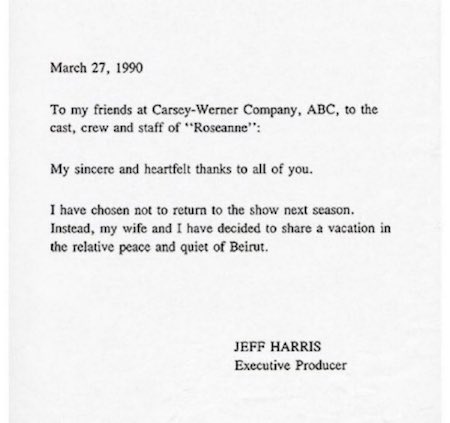

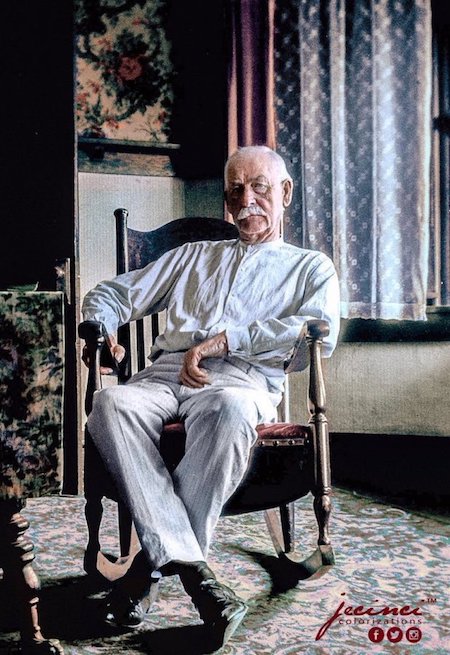
75yr old WYATT EARP – #botd in 1848 – at home in 1923.









Elephants
Adorable pic.twitter.com/ZbdioRPWEK
— istanbulmu9 ❦ (@istanbulmu9) March 19, 2023


Support the Automatic Earth in virustime with Paypal, Bitcoin and Patreon.










Home › Forums › Debt Rattle March 20 2023